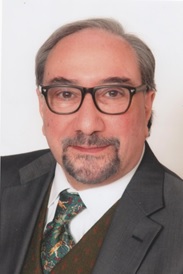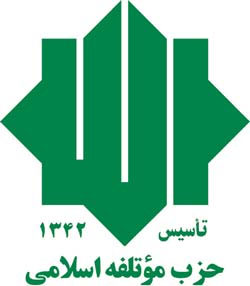
Jürgen Habermas is a German social theorist in the tradition of critical theory and pragmatism. His work addresses communicative rationality and the public sphere.

The Reformists are a political faction in Iran. Iran's "reform era" is sometimes said to have lasted from 1997 to 2005—the length of President Mohammad Khatami's two terms in office. The Council for Coordinating the Reforms Front is the main umbrella organization and coalition within the movement; however, there are reformist groups not aligned with the council, such as the Reformists Front.

Abdolkarim Soroush (عبدالكريم سروش Persian pronunciation: [æbdolkæriːm soruːʃ]; born Hossein Haj Faraj Dabbagh, is an Iranian Islamic thinker, reformer, Rumi scholar, public intellectual, and a former professor of philosophy at the University of Tehran and Imam Khomeini International University. He is arguably the most influential figure in the religious intellectual movement of Iran. Soroush is currently a visiting scholar at the University of Maryland in College Park, Maryland. He was also affiliated with other institutions, including Harvard, Princeton, Yale, Columbia, the Leiden-based International Institute as a visiting professor for the Study of Islam in the Modern World and the Wissenschaftskolleg in Berlin. He was named by Time magazine as one of the world's 100 most influential people in 2005, and by Prospect magazine as one of the most influential intellectuals in the world in 2008. Soroush's ideas, founded on relativism, prompted both supporters and critics to compare his role in reforming Islam to that of Martin Luther in reforming Christianity.

Mojahedin of the Islamic Revolution of Iran Organization is a reformist political organization in Iran. It is a small yet influential organization, and participates in political activities similar to a political party. Historian Ervand Abrahamian referred to the group as "a circle of intellectuals and technocrats radical in economic policies but relatively liberal in cultural matters."

The Association of Combatant Clerics is an Iranian reformist clerical political party. It is regarded as a left-wing party within the Iranian political spectrum.

Morteza Motahhari was an Iranian Twelver Shia scholar, philosopher, lecturer. Motahhari is considered to have an important influence on the ideologies of the Islamic Republic, among others. He was a co-founder of Hosseiniye Ershad and the Combatant Clergy Association. He was a disciple of Ruhollah Khomeini during the Shah's reign and formed the Council of the Islamic Revolution at Khomeini's request. He was chairman of the council at the time of his assassination.

Ayatollah Mohammad Mofatteh was an Iranian philosopher, theologian, and political activist, born in Famenin, Hamadan, Iran. After he finished his primary education in Hamadan, he left for the Islamic Seminary in Qom, where he was taught by reputable teachers such as Ayatollah Muhammad Hujjat Kuh-Kamari, Ayatollah Sayyed Hossein Tabatabei Borujerdi, Grand Ayatollah Sayyid Ruhollah Mūsavi Khomeini, Ayatollah Mohammad-Reza Golpaygani, Ayatollah Marashi, and Allameh Tabatabie. He continued his studies at seminary and at the same time studied philosophy at Tehran University, where he earned his PhD and became a professor and a dean of colleague.
Intellectual movements in Iran involve the Iranian experience of modernity and its associated art, science, literature, poetry, and political structures that have been changing since the 19th century.
Ramin Jahanbegloo is an Iranian philosopher and academic based in Toronto, Canada.

Legitimation crisis refers to a decline in the confidence of administrative functions, institutions, or leadership. The term was first introduced in 1973 by Jürgen Habermas, a German sociologist and philosopher. Habermas expanded upon the concept, claiming that with a legitimation crisis, an institution or organization does not have the administrative capabilities to maintain or establish structures effective in achieving their end goals. The term itself has been generalized by other scholars to refer not only to the political realm, but to organizational and institutional structures as well. While there is not unanimity among social scientists when claiming that a legitimation crisis exists, a predominant way of measuring a legitimation crisis is to consider public attitudes toward the organization in question.
Religious intellectualism in Iran reached its apogee during the Persian Constitutional Revolution (1906–11). The process involved philosophers, sociologists, political scientists and cultural theorists.

Homa Katouzian is an economist, historian, sociologist and literary critic, with a special interest in Iranian studies. Katouzian's formal academic training was in economics and the social sciences but he concurrently continued his studies of Persian history and literature at a professional academic level. He began studying the life and works of the modern Persian writer, Sadeq Hedayat, and that of the Prime Minister of Iran in the early 1950s, Mohammad Mosaddeq, while still a faculty member in the department of economics at the University of Kent at Canterbury. Having taught economics at universities in Britain and other countries for eighteen years, he took voluntary retirement in 1986 to devote his entire time to Iranian studies. In recent years, he has been teaching and writing on classical Persian literature, in particular the 13th-century poet and writer, Sa‘di. Currently based at the University of Oxford, Katouzian is a member of the Faculty of Oriental Studies and the Roshan Institute Academic Visitor in Iranian Studies at St. Antony's College, where for thirteen years he edited the bimonthly Iranian Studies, the journal of the Association for Iranian Studies. He is editor of the International Journal of Persian Literature, and co-editor of Routledge's Iranian studies book series. He is also a former member of the editorial board of Comparative Studies of South Asia, Africa and the Middle East and Comparative Economic Studies.
Mahmoud Sadri is an Iranian sociologist. He is the twin brother of Ahmad Sadri. He graduated with his master's degree in Sociology as well as a Baccalauréat qualification from the University of Tehran in 1976 and 1974 respectively. He then earned his PhD from The New School University, New York in 1988.

Dr Ali Murad Davudi (1922–1979?) was an Iranian Baháʼí who was a member of the national governing body of the Baháʼís in Iran. He was a professor at Tehran University in the philosophy department. In 1979, during a wave of persecution toward Baháʼís, he was kidnapped and has been presumed a victim of state execution.
Andrew Arato is a professor of Political and Social Theory in the Department of Sociology at The New School, best known for his influential book Civil Society and Political Theory, coauthored with Jean L. Cohen. He is also known for his work on critical theory and constitutions and was from 1994 to 2014 co-editor of the journal Constellations with Nancy Fraser and Nadia Urbinati.

The Islamic Coalition Party is a conservative political party in Iran that favors economic liberalism.

Alessandro Ferrara is an Italian philosopher, currently professor of political philosophy at the University of Rome Tor Vergata and former president of the Italian Association for Political Philosophy. He also teaches legal theory at Luiss Guido Carli University in Rome.

A critical theory is any approach to social philosophy that focuses on society and culture to reveal, critique and challenge power structures. With roots in sociology and literary criticism, it argues that social problems stem more from social structures and cultural assumptions than from individuals. It argues that ideology is the principal obstacle to human liberation. Critical theory finds applications in various fields of study, including psychoanalysis, sociology, history, communication theory, philosophy and feminist theory.

The Islamic Association of Teachers of Iran is an Iranian reformist teacher's political organization/labor union. Most members of the association are employees of Ministry of Education.
Ali Gheissari is an Iranian historian and sociologist. He teaches history at the University of San Diego and has research interest in the intellectual history of modern Iran and in modern philosophy and social theory. He has been visiting professor of religious studies at Brown University, Iranian Studies at St. Antony's College, Oxford, and History of Modern Iran at the University of California, Irvine. He is known for his works on the intellectual history and politics of modern Iran. He is on the Editorial Board of Iran Studies book series published by Brill, and has served as the Editor-in-Chief of the journal Iranian Studies.













